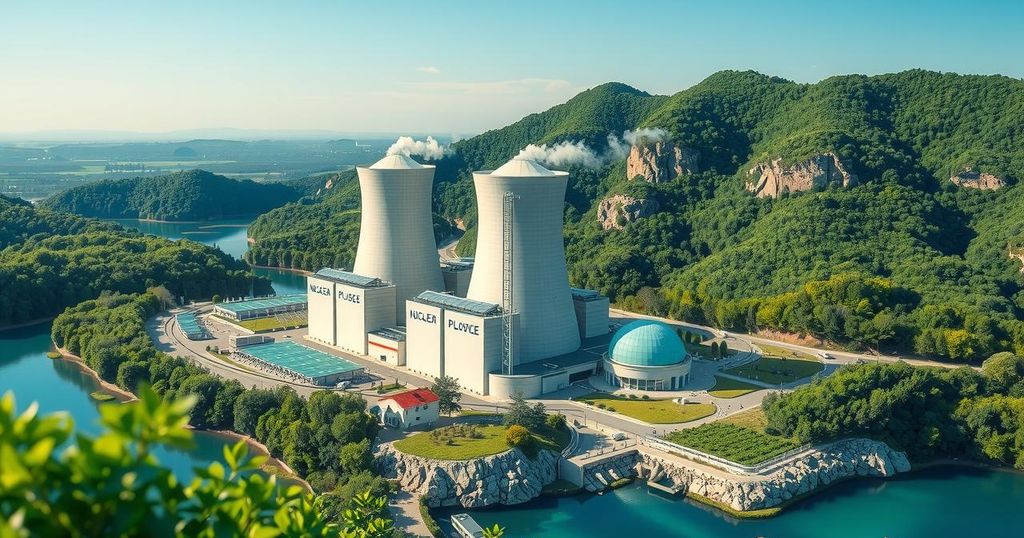Global news
ASIA, ATOMS FOR PEACE, CHER, CHULALONGKORN UNIVERSITY, ENERGY, EUROPE, FU, GREEN ENERGY, INFRASTRUCTURE DEVELOPMENT, INTERNATIONAL RELATIONS, JAPAN, KRUNGTHEP TURAKIJ, NUCLEAR SOCIETY OF THAILAND, OFFICE, OFFICE OF ATOMS FOR PEACE, PENN, PENNAPA KANCHANA, RENEWABLE ENERGY, SO, SUCH, THAILAND, UKRAINE
Fatima Khan
0 Comments
Strengthening Trust in Nuclear Power: The Need for Awareness in Thailand
Experts suggest that Thailand should enhance public awareness of nuclear power to build trust. Small Modular Reactors (SMRs) are a key alternative for reducing emissions and energy dependence. Challenges include high costs and social acceptance, but strengthening education and collaboration among agencies is vital for overcoming public fears and ensuring a skilled workforce.
Thailand must elevate awareness surrounding nuclear power to foster public confidence, as asserted by various experts during a roundtable hosted by Krungthep Turakij. Pennapa Kanchana, deputy secretary-general of the Office of Atoms for Peace, indicated that Small Modular Reactors (SMRs) offer a viable alternative for lowering greenhouse gas emissions, enhancing energy security, and decreasing reliance on fossil fuels. Though SMRs generate only a fraction of the electricity produced by large power plants, they can be constructed with greater ease and are deemed safer, with potential for processing radioactive waste for medical applications.
Despite the existing laws and regulations established in 2016 that align with international standards, challenges remain, particularly in construction costs and social acceptance. Pennapa acknowledged public apprehensions stemming from historical nuclear disasters, such as Fukushima and Chernobyl. She stated, “Thailand’s laws are ready except for civil responsibilities,” advocating for international cooperation to mitigate uncertainties and bolster public trust.
Somboon Rassame, head of Chulalongkorn University’s nuclear engineering department, highlighted the urgent need for a skilled workforce within Thailand’s nuclear sector, which currently suffers from a lack of expertise. He anticipates rapid technological advancements over the next 13 years, predicting intense competition on a global scale. “Thailand needs to develop courses, training workshops, and international knowledge exchange to remain competitive,” he asserted. Furthermore, he called on the government to enhance educational systems supporting nuclear technology to alleviate public concerns regarding safety.
Suchin Udomsomporn, vice president of the Nuclear Society of Thailand, emphasized the critical importance of increasing public knowledge and collaboration among relevant agencies. She remarked that addressing public fears about nuclear power is essential, especially considering its beneficial applications in healthcare, such as in X-rays and radiation therapy. “Relevant agencies should prioritise providing accurate, transparent, and trustworthy information for future generations,” she stated, while recommending the integration of nuclear power concepts into educational curricula and fostering the next generation of nuclear industry professionals.
In conclusion, to build public confidence in nuclear power, Thailand must prioritize awareness and education initiatives. The development of skilled personnel and transparent communication from relevant agencies will be essential in overcoming public fears and misinformation. By embracing international collaboration and enhancing educational frameworks, Thailand can position itself as a leader in safe and effective nuclear technology utilization.
Original Source: www.nationthailand.com




Post Comment